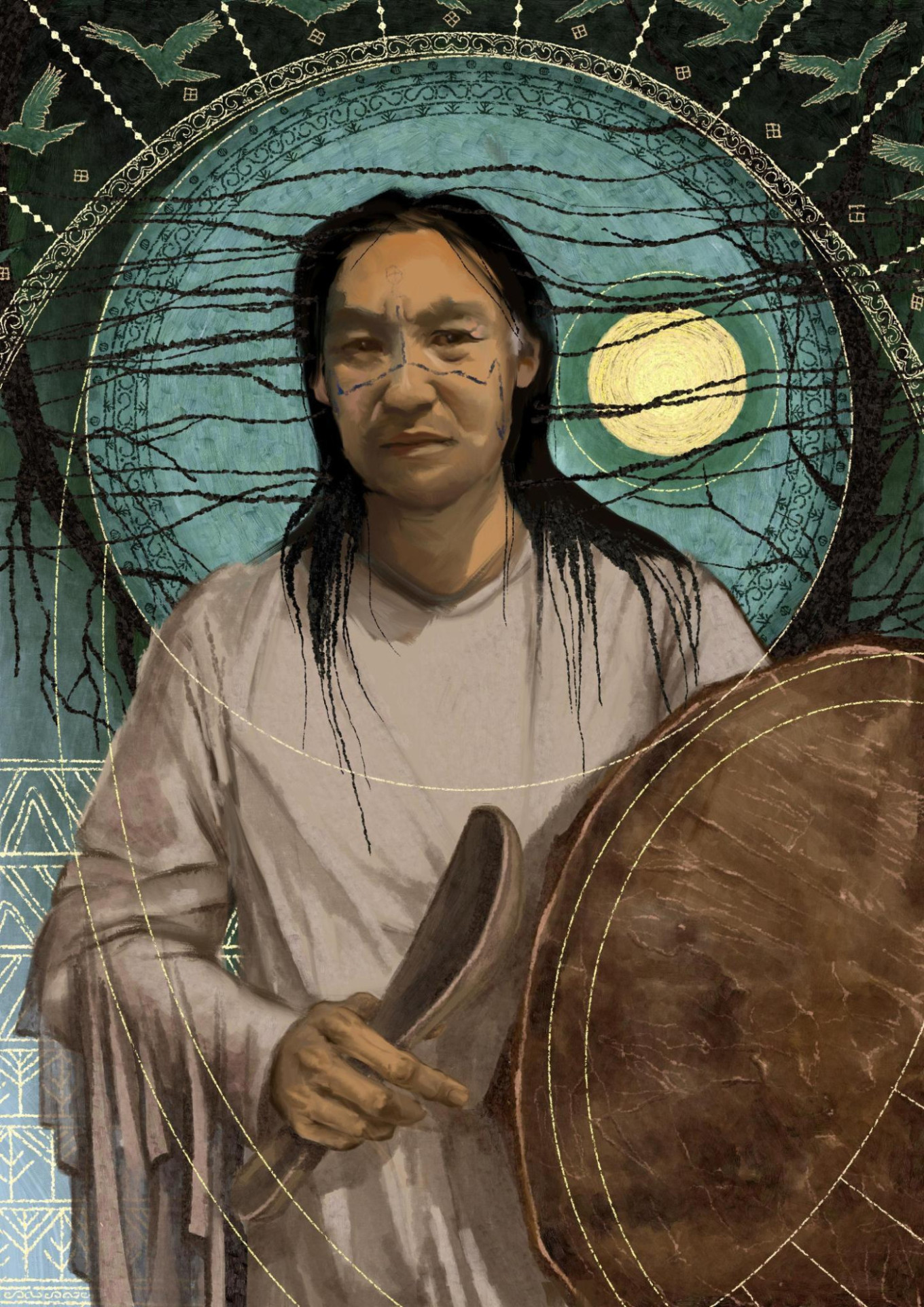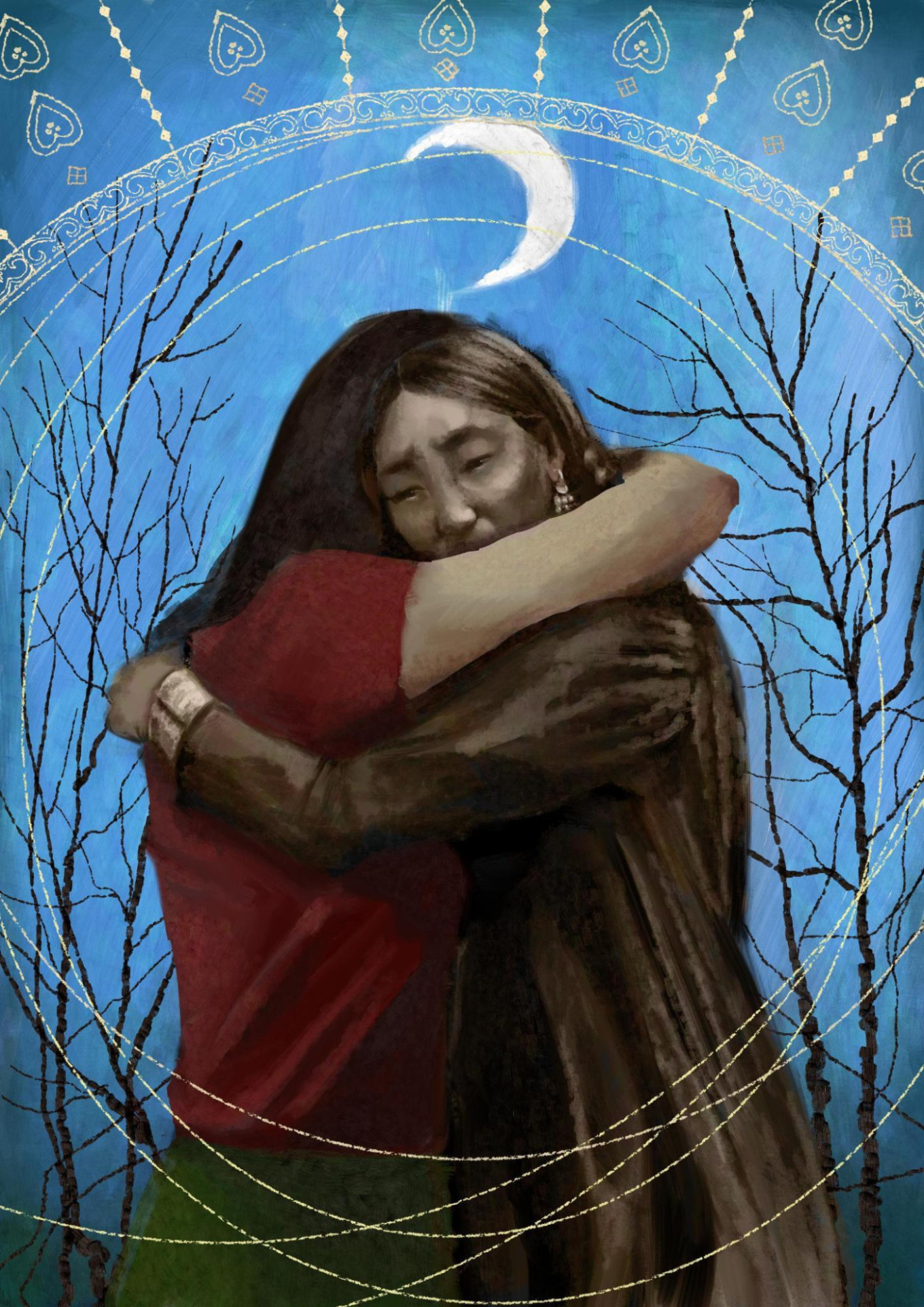Amsterdam’s bustling Red Light District has a good deal to provide to readers on a Saturday evening, but a showcase of art and music of Russia’s indigenous non-Slavic communities might just have been the most distinctive celebration that took area there final weekend.
Held at a local Walloon Church and organized by Netherlands-centered anti-war collective Totally free Russia NL, a charity party called [Mirrors]: Reflections of the Unseen captivated dozens of locals and customers of the Russian diaspora. They came hunting to find out extra about Russia’s ethnic and cultural diversity and assistance victims of Moscow’s invasion of Ukraine.
“I feel lots of men and women in the West really don’t always see Russia as an empire…And I would like to make them issue this,” explained Lana Pylaeva, an ethnic Komi activist and board member of Free of charge Russia NL.
“We want to say to Westerners: ‘Yes, we are Russians, but not ethnically. We exist. And we are versus this war,” Pylaeva instructed The Moscow Times.
At the core of the journey across Russia’s ethnic republics was the screen of prints by indigenous illustrators from Buryatia, Kalmykia, Khakassia, Sakha (Yakutia) and Tuva.
All the operates on screen have been united by the artists’ shared heritage of shamanism, Turko-Mongolic folklore and myth-making and — in some circumstances — aspects of Buddhism. But these creations also explain to a popular tale of the trauma inflicted by Russia’s colonial procedures — procedures that have facilitated cultural and linguistic erasure between non-Slavic ethnic teams residing within its borders.

Courtesy of the artist
This trauma is also reflected in the event’s title, [Mirrors], the place the brackets represent an invitation for each artist to fill in this house with the word in their respective mother tongue. But in most conditions this space would have to continue to be blank.
“When I requested fellow illustrators if we could make a bilingual show in English and their native languages, most claimed that they really do not know their indigenous language [but know Russian],” mentioned Seseg Jigjitova, a Berlin-based artist from Buryatia. “So the illustrators from our republics are reflecting on both of those their cultural and linguistic identity,” she included.
The only show featuring an indigenous language was by Sakha artist Sargylana Cherepanova, who seems to be to reconcile with her ancestral traditions and re-embrace her native lifestyle in her do the job.
“I was neglecting my Sakha ancestors, my language, my tradition since that’s what the russian technique taught me to do, for the reason that the program expended so a lot dollars and effort and hard work to russify me,” Cherepanova writes of her function, deciding on to spell “russia” with a lowercase letter to present contempt for its guidelines.

Courtesy of the artist
In addition to printed performs, Cherepanova also takes advantage of videogames as a medium for reflection on Russia’s colonial guidelines. Her future recreation Uhuktuu (“awakening” in the Sakha language) uses as its starting off issue the discrimination Russia’s ethnic minorities and indigenous peoples expertise at dwelling and their disproportionate share of navy casualties in the war in Ukraine.
Seseg Jigjitova was also motivated by Russia’s ongoing invasion of Ukraine.
On screen in Amsterdam were being excerpts from Jigjitova’s upcoming graphic novel that documents her personal transformation in the wake of the war and focuses on her deeply private trauma of racial discrimination and marginalization in her native Siberia.
“My comics had been intended to begin from 24 February, but when I began drawing, I realized that I have to have to go again to my university decades when the war in Chechnya started…I consider to fully grasp why I did not question particular issues then,” Jigjitova informed The Moscow Situations.
“After the war in Ukraine began, I all of a sudden realized that we never exist in the photo of the stunning Russia of the future that is painted by the liberal opposition — and that we were being never ever there,” Jigjitova defined.
“So I determined that we have to have to make our individual vision of the upcoming pretty much and figuratively.”
A different significant emphasize of [Mirrors] was a concert of common folk tunes and classical music from Russia’s ethnic republics executed by Netherlands-dependent concert pianists Maria Nemtsova and Aliya Iskhaki, saxophonist Vitaly Vatulya and violinist Yulia Gubaydullina.
The musicians performed functions by Mari composer Andrei Eshpai, Komi composer Mikhail Gertsman, Sakha composer Nikolay Berestov, trailblazing feminine Dagestani composer Jennet Dalgat and her compatriot Gotfried Gasanov, as well as Tatar composer Almaz Monasypov — all of them exceptional musical treasures mostly unfamiliar to the two foreign and Russian audiences.
“I did not want to enjoy just classical new music, but desired to obtain pieces with people factors,” pianist Aliya Iskhaki instructed The Moscow Times.
“I have been playing Tatar tunes in the West for several decades and I know that the typical community in this article is open up and interested in hearing a thing they don’t know,” she said, incorporating that getting the sheet audio experienced been “an adventure of its very own.” Several copies of the music were being printed in the Soviet Union and only some of the works were afterwards digitized by devoted fans. Fortunately, they ended up keen to share them for this charity function.
All cash lifted at the Saturday event had been donated to a children’s hospice in Ukraine. The resilience of Ukrainians was also identified by musicians who commenced the live performance with a piece by Ukrainian composer Myroslav Skoryk, “Melody in A Minor,” which has become the unofficial religious hymn of the nation.
“Ukrainians are combating for the suitable to be Ukrainian, to converse the Ukrainian language. They are preventing for their culture,” stated Pylaeva of No cost Russia NL.
“This resonates with lots of ethnic non-Russians in Russia.”